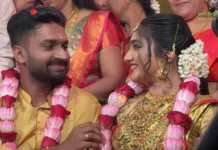New Delhi: A bench headed by Chief Justice DY Chandrachud held that the committees formed by various BJP-ruled states to implement the Uniform Civil Code are constitutional. The Supreme Court rejected the plea filed by Anoop Baranwal seeking to stop this move to implement the Uniform Civil Code.
The plea came against the backdrop of the BJP governments of Gujarat and Uttarakhand appointing a committee to submit proposals for the implementation of the Uniform Civil Code. Dismissing the argument in the petition that the move to study a single civil code is unconstitutional, Chief Justice D.Y. Chandrachud asked back what is wrong. The Chief Justice continued that the Uttarakhand government constituted the committee to study the Uniform Civil Code by using the powers conferred by Article 162 of the Constitution. Look what’s fifth in the concurrent list. This petition is not maintainable. The court asked the petitioner whether the Supreme Court should dismiss the petition or withdraw it.
The Chief Justice clarified that Gujarat and Uttarakhand formed committees to frame a single civil code. Article 162 of the Constitution indicates how much power the legislature gives to the states. The Chief Justice added that the creation of a committee itself cannot be questioned because it is unconstitutional. On Friday, in a plea by a BJP leader, the central government had stated in the Supreme Court that the legislatures have the power to make uniform laws on matters such as marriage, divorce, alimony, and inheritance. The bench headed by the Chief Justice upheld this.
Additional Solicitor General KM Nataraj, who appeared for the Centre, said that the petition filed by BJP leader Ashwini Kumar Upadhyaya should not be considered by the Supreme Court and the legislative assemblies would decide the matter.
Upholding this argument, the Chief Justice opined that the matter is within the jurisdiction of the legislatures and should be decided by Parliament. The BJP leader demanded that the Supreme Court instructed the Law Commission to submit a report on the demand for the unification of marriage and divorce laws. At the same time, the advocate appearing for the Muslim petitioner, Adv. Huzaifa Ahmadi said that since the laws of marriage and divorce are in the Muslim Personal Law, which is possible for the husband and wife to marry and divorce when they want, they do not need a unified law. The Chief Justice responded that they were not talking about that but in a broader sense.




























